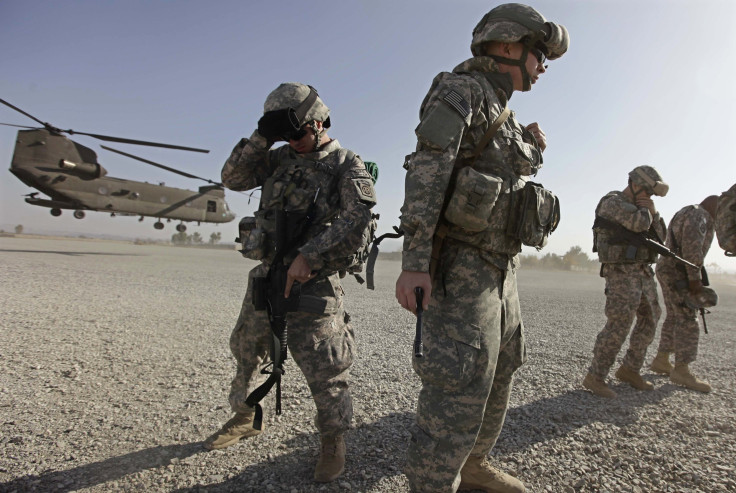Public Support Influences Soldier's Mental Distress, Study Finds Ways To Reduce PTSD

The level of public support for war is likely influencing a soldier's mental distress, according to a new study. Researchers also proposing ways to reduce those chances of developing post-traumatic stress disorder.
Findings from the University of Alberta are recommending policy makers choose their battles more wisely or risk the mental health of soldiers.
"We did have some participants who showed some clear distress not only when going through the initial act of killing, but also after finding that somebody else had refused to do it," said David Webber, researcher at the department of psychology. "There were some clear physical signs that people were uncomfortable after they found out it was invalidated by other people."
The study included two designs, one in which an actor showed disgust when the participant was asked to kill woodlice using coffee grinders while another group looked at participants recording who refused or decided to kill the bugs.
The results showed that the participants felt more guilty and distressed when they found their actions were socially unaccepted. Webber advises leaders on the ways to avoid seeing this mental distress.
Analyzing historical protests over the military's role in Vietnam, for example, influenced the minds of returning soldiers into rationalizing their actions as unjust or immoral.
"When decisions are made to go to war, they should be based less on fear and insecurity and more in hard realities, such as if the country has been attacked," said Webber. "If the decisions are undertaken with good reason, with legitimate evidence behind them, protests should be less likely and invalidation should be less of a problem."
Webb also pointed out that when soldiers are returning home, the country may not seem as supportive as the start of the war-making it even more troubling.
He recommends leaders finding ways to help veterans face the harsh public disapproval of the government's choice to go to war. While there is no final treatment, soldiers need to put a lot of thought and care into all the mental stresses before signing on.
According to the National Institute of Mental Health, the United States has seen a large number of cases of post-traumatic stress disorder, or PTSD. The anxiety disorder is prevalent in 3.5 percent of the adult population in the U.S., out of which more than 36 percent are considered severe cases and only 49 percent are receiving adequate treatment.
Some symptoms to recognize in individuals struggling with PTSD are hyper-arousal, avoidance, numbing and re-living the tragic even in nightmares or as flashbacks.
The findings were published in Personality and Social Psychology Bulletin.
Published by Medicaldaily.com



























